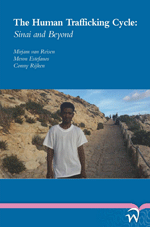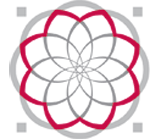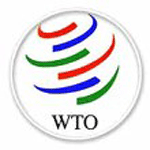Published on Thu, 2013-12-05 14:49
The report "The Human Trafficking Cycle: Sinai and Beyond is based on the graphic testimonies of refugees from the Horn of Africa, the vast majority being Eritrean, who have been through the torture camps of Sinai. It is estimated that between 25,000 and 30,000 refugees have been held as hostages in Sinai, of whom many have died or disappeared. That total value of the entire Sinai Trafficking cycle is calculated to be of the order of 600 million USD. The Human Trafficking Cycle: Sinai and Beyond shows that for the survivors of Sinai the challenges do not end when they are released, but continue as most remain trapped in situations of insecurity and without the support they need to recover from the physical and psychological trauma of their experiences. |
Published on Mon, 2013-12-02 23:00
Like all companies, financial companies can and must do more to recognize their frequent role in violating human rights and take action to respect human rights. At the recent ESCR-Net Peoples’ Forum on Human Rights and Business, held between November 5-7 in Bangkok, close to a 100 civil society and grassroots organizations from around the world deliberated on the direction of the corporate accountability movement, and they reiterated the need to establish strong systems of accountability to combat corporate human rights abuses. |
Published on Thu, 2013-11-28 23:36
A delegation of the Arab NGO Network for Development (ANND) visited Brussels between the 4th and the 8th of November 2013, where it met with officials at the European Commission, the European Parliament, the Euro-Med Parliamentary Assembly and the European civil society. The delegation focused on five key issues during the meetings, as well as hearings at the European Parliament and deliberations at the forum it organized during the visit with the participation of European CSOs and representatives of the European Commission and the European In-vestment Bank (EIB). These issues are the Euro-Arab political relations, especially regarding the challenges of democratic transition, faced by some of the region’s states and peoples, particularly Egypt and Syria. Euro-Arab economic relations, with a focus on trade relations and ongoing negotiations with Morocco to reach in-depth and comprehensive free trade agreements. The European policy on foreign aid and the relationship with civil society. Issues related to security and peace in the region, and immigration and the movement of citizens between both sides of the Mediterranean. |
Published on Thu, 2013-11-28 23:19
It is unconscionable to require Yemen to fully implement a sophisticated regime of intellectual property protection as a condition to trade internationally, argue civil society organizations from around the world in a letter to the World Trade Organization. Yemen is one of the poorest countries in the Arab region. It has extremely weak infrastructure, and underdeveloped scientific and innovative capacities. Yemen faces massive challenges in ensuring its population has access to education, health and other basic services as the country emerges from a period of civil unrest. The accession of Yemen to the WTO will be decided in the coming ministerial meeting of the trade organization in Bali, Indonesia. Strict adherence to the protection of intellectual property should not be a precondition, argue the signatories. |
Published on Thu, 2013-11-28 22:08
Hanaa Edwar, secretary general of Al-Amal Association, the Iraqi member of Social Watch has been named “Arab Woman of the Year 2013” by Takreem for her distinctive hard work, courage and successes in the field of civil society and human rights for equality, women's rights, and the empowerment of women to participate effectively in society and political life. In her speech at the award ceremony, Hanaa Edwar expressed her thanks, deep gratitude to Takreem, and stressed her sense of greater responsibility beyond the borders of her homeland. She also thanked her colleagues at Iraqi Al-Amal Association and many civil society organisations for the support and assistance she received during her work, who,together, planted the seeds of hope in the wounded Iraq. |








